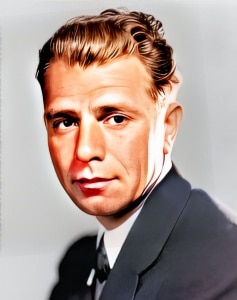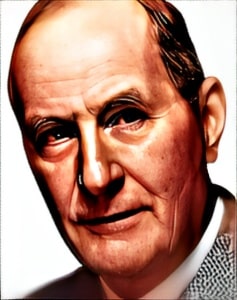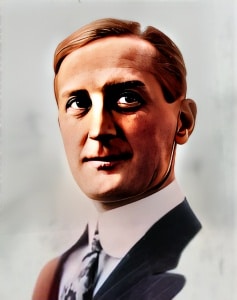 Lewis Sargent (1862-1932) was an American actor who left an enduring mark on both the theatrical stage and the early years of American cinema.
Lewis Sargent (1862-1932) was an American actor who left an enduring mark on both the theatrical stage and the early years of American cinema.
Born on July 5, 1862, in Waterville, Maine, Sargent’s career spanned several decades, showcasing his versatility and talent as an actor. His contributions to both silent films and the theater established him as a respected figure in the world of entertainment.
Sargent’s journey into the performing arts began with a strong passion for acting. He pursued his interest in the theater and quickly gained recognition for his talents. His early experience on the theatrical stage laid the foundation for his future success in both the theater and the emerging world of silent films.
As the motion picture industry was in its nascent stage, Lewis Sargent transitioned to silent films during the early 20th century. His background in the theater provided him with the skills and experience needed to excel in the world of cinema, where his acting prowess and expressive face made him a valuable asset.
In silent films, Sargent portrayed a diverse range of characters, highlighting his ability to adapt to various roles. His filmography featured both dramatic and comedic characters, showcasing his versatility as an actor. Sargent’s on-screen performances were marked by his ability to convey emotions effectively and his talent for immersing himself in his characters.
One of Lewis Sargent’s notable film roles was in the 1914 silent drama “The Squaw Man.” Directed by Cecil B. DeMille, the film featured Sargent in a pivotal role, where he played the character of Captain Ryder. His performance in “The Squaw Man” was instrumental in advancing the film’s narrative and established him as a respected figure in the silent film industry.
Sargent’s work in silent films demonstrated his ability to breathe life into his characters and connect with audiences. His performances resonated with viewers, and he was celebrated for his expressive portrayals and captivating on-screen presence. His dedication to both the theatrical stage and silent films underscored his versatility as an actor.
In addition to his contributions to early American cinema, Lewis Sargent continued to be active on the theatrical stage, further showcasing his range and talent as an actor. His commitment to both mediums highlighted his enduring dedication to the world of entertainment.
While the specifics of Sargent’s later career are less documented, his early work on both the theatrical stage and in silent films remains a significant part of the history of American cinema and the theater. His ability to transition seamlessly between these two mediums, combined with his talent for embodying diverse characters, established him as an influential figure in the entertainment industry during a transformative period.
Lewis Sargent’s impact on the early years of American cinema, characterized by his adaptability and expressive performances, continues to be celebrated as an integral part of cinematic history. His legacy as a versatile actor endures, leaving a lasting mark on the world of entertainment. Lewis Sargent passed away on December 24, 1932, but his contributions to the early years of American cinema remain a testament to his talents and versatility as an actor.

 Lewis Sargent (1862-1932) was an American actor who left an enduring mark on both the theatrical stage and the early years of American cinema.
Lewis Sargent (1862-1932) was an American actor who left an enduring mark on both the theatrical stage and the early years of American cinema.


